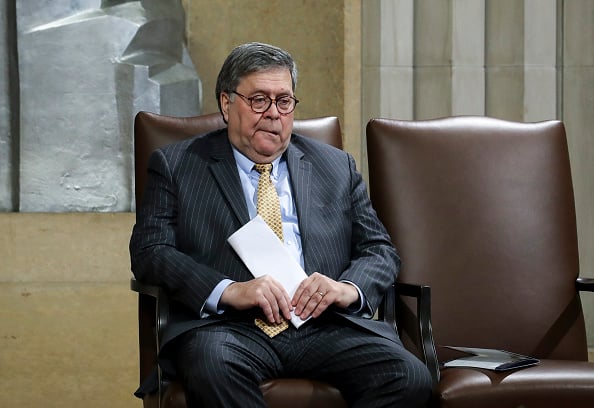Last week, this column reported on the goings on from the first week of 2020’s virtual edition of IP Dealmakers Forum. Thankfully, week two of the conference was just as action-packed, albeit sans a repeat of the very delicious and informative whiskey tasting administered with aplomb by the good people at Fine & Rare NYC. In its place as a virtual social event was Trivia Night hosted by TeamBonding, with the usual assortment of questions on sports, entertainment, and history supplemented by IP-specific queries engineered by the IP Dealmakers hosting team. A fun time was had, with panelist, colleague, and Trivia Monster Jackie Hutter taking the honors. Kudos to the IP Dealmakers team for recognizing the importance of bonding events at industry conferences and doing their best to provide fun diversions despite the challenges of doing so virtually. The ultimate success of a conference, however, is whether it delivers on the content front. Busy professionals invest their time and resources to attend because they want to learn something.
As expected, the content at IP Dealmakers delivered. As with last week, it would be impossible to accurately convey all the insights from week 2’s panels in the space of this column. But we can provide a flavor of the hot topics, particularly as they relate to the ever-changing nature of IP practice. In particular, I want to focus on three key takeaways from various panels I attended over the course of the week. Again, these are just an idiosyncratic sampling of the broad and deep discussions that every panel at IP Dealmakers put forth. For our purposes, however, I want to focus on three headline discussion points from the conference that have also been major topics of this column over the years — and promise to be part of our discussions for years to come: 1) Diligence, 2) Venue, and 3) Licensing.
First, Diligence. As the panel on litigation funding for IP matters correctly highlighted, diligence is one of the key areas where IP owners can benefit from the assistance of litigation funders. Working from the premise that litigation funding is displacing the traditional contingency model when it comes to certain types of patent litigation, there was a clear message regarding diligence to the IP community sent by the litigation funder panelists. First, that litigation funders have invested and continue to invest in their diligence capabilities, particularly when it comes to IP matters. Second, that the level of diligence of potential patent funding opportunities remains as robust as ever, even as funders are presented with increasing numbers of patent matters for review. Third, that litigants and their law firms do best by taking a proactive role in the diligence process, both in terms of presenting funders with all the information they need to do a deep dive into the risks of a particular prospective investment and by willingly discussing those risks with funders as part of the diligence process.
The benefit of all this diligence, of course, redounds to everyone in the process. Law firms get a free second opinion on riskier non-(full) paying projects, funders project their investors’ capital from poor investments, and patent owners get risk-based pricing based on informed analysis of the strengths and weaknesses of their particular cases. In short, diligence remains a touchstone element of the rapidly evolving patent litigation funding marketplace.
Second, Venue. This column has repeatedly addressed the importance of venue in modern-day patent litigation, as recently as a few weeks ago. In that column I claimed “venue is a critical component of patent litigation, from pre-suit seeking of litigation funding to post-filing motion practice.” The depth and breadth of the discussion at IP Dealmakers about venue’s importance reinforced the accuracy of that claim. For example, there was interesting discussion of why it may be more critical than ever for patent owners to file in fast-track venues, both as a way of getting early technical discovery from defendants and to try to head off stays pending IPR — or IPR institution itself, for as long as NHK/Fintiv is viable. One may feel that it shouldn’t matter so much where a case is filed, but the current reality is that venue can have a profound impact on both the track and ultimate fate of a patent case. As long as that continues, we can expect venue disputes to proliferate and the topic to remain a staple of IP conference conversations for some time to come.
Third, Licensing. There is no doubt that much of the licensing activity in the patent space today is based, at least in part, on an evaluation of damages exposure by the licensee in the case of an infringement assertion against it. While there have been a number of large verdicts in patent disputes lately, including some earned by nonpracticing entities or universities, there remains a level of frustration on the part of patent owners about the reluctance of many (frequently targeted) technology companies to conduct serious licensing discussions until sued. On the flip side, those same technology companies face challenges in taking licenses unless forced to, if only to try to deter even more challenges from hungry patent owners.
It was interesting therefore, to hear the different perspectives on offer during the final panel of the conference concerning connected cars and 5G, two critical areas of technological development and deployment right now. At the heart of the conversation was the recognition by all that the licensing model that may predominate in one technology area — such as wireless communications — may find itself under stress to adapt to a different one, such as connected cars. Put another way, licensing models are not one size fits all — and no one wants them to be. Patent owners looking to establish a licensing rate for billions of communication-enabling chips don’t want that same rate applied to a $40,000+ car that measures sales in the millions at best. And defendants in one industry do not want the damages starting point set by licensees in a different one, as just one example.
Ultimately, conferences like IP Dealmakers are at their best when they help frame the right questions for attendees to consider as they move forward with their professional duties. This year’s conference may have been held under unusual circumstances, but that did not stop the panelists and participants from boldly stating both questions and their proposed answers. It may take some time to determine which of those answers prove correct, of course. But at least the IP Dealmakers sent a clear signal that everyone playing the IP game fully intends to keep dealing.
Please feel free to send comments or questions to me at gkroub@kskiplaw.com or via Twitter: @gkroub. Any topic suggestions or thoughts are most welcome.
Gaston Kroub lives in Brooklyn and is a founding partner of Kroub, Silbersher & Kolmykov PLLC, an intellectual property litigation boutique, and Markman Advisors LLC, a leading consultancy on patent issues for the investment community. Gaston’s practice focuses on intellectual property litigation and related counseling, with a strong focus on patent matters. You can reach him at gkroub@kskiplaw.com or follow him on Twitter: @gkroub.




 Jordan Rothman is a partner of
Jordan Rothman is a partner of 










